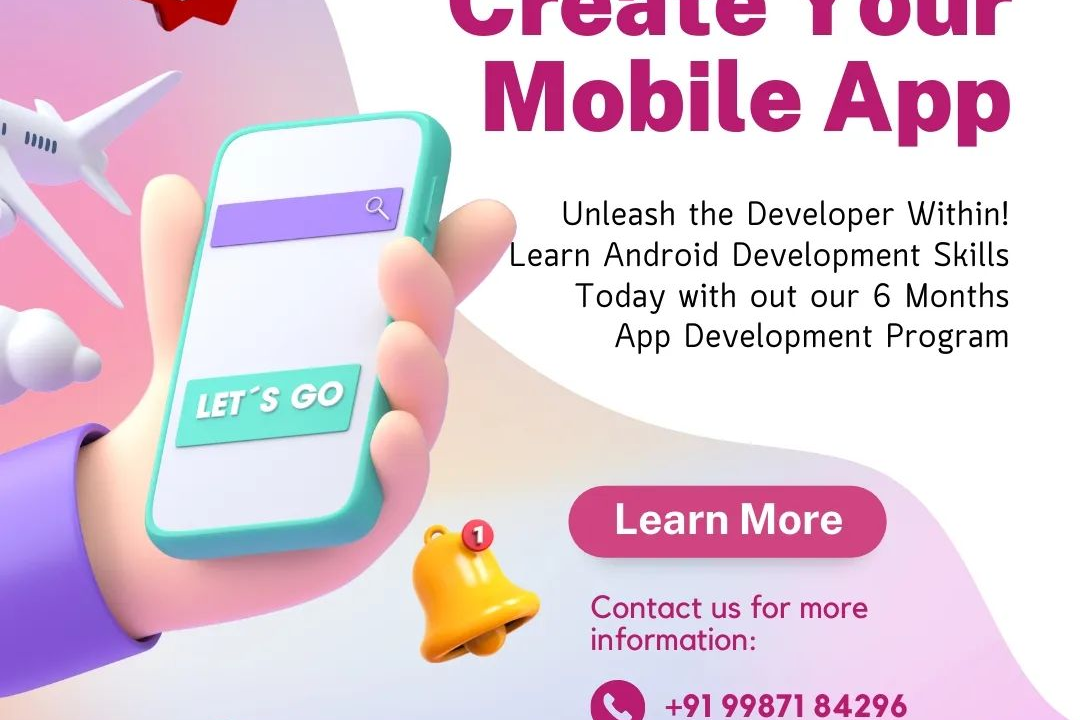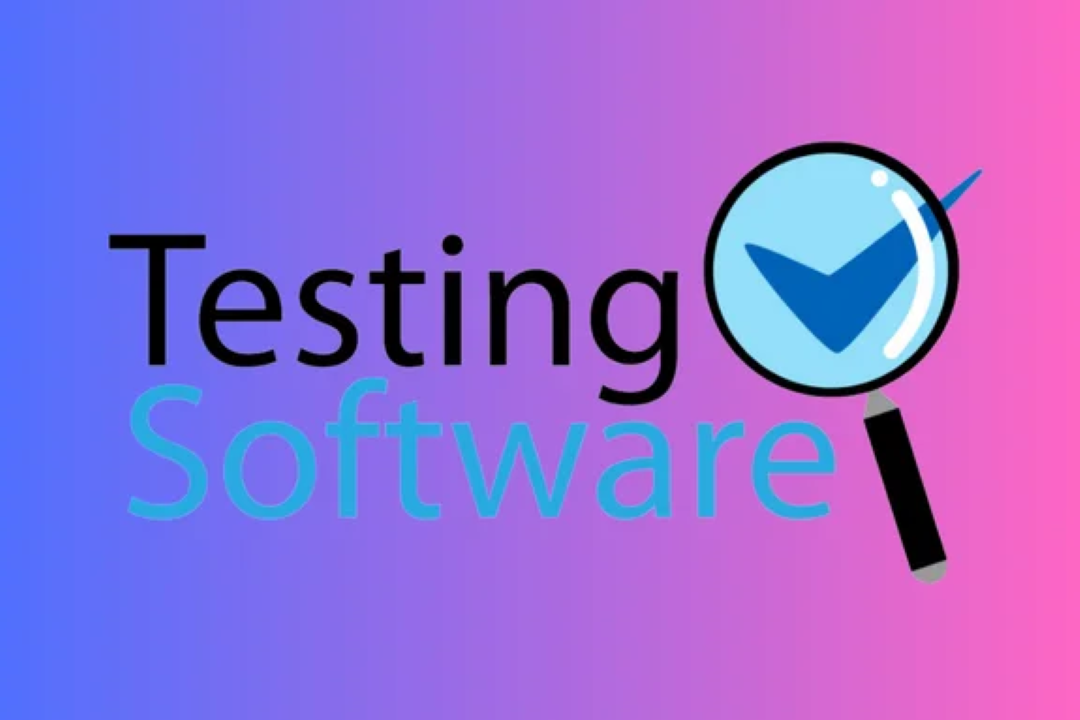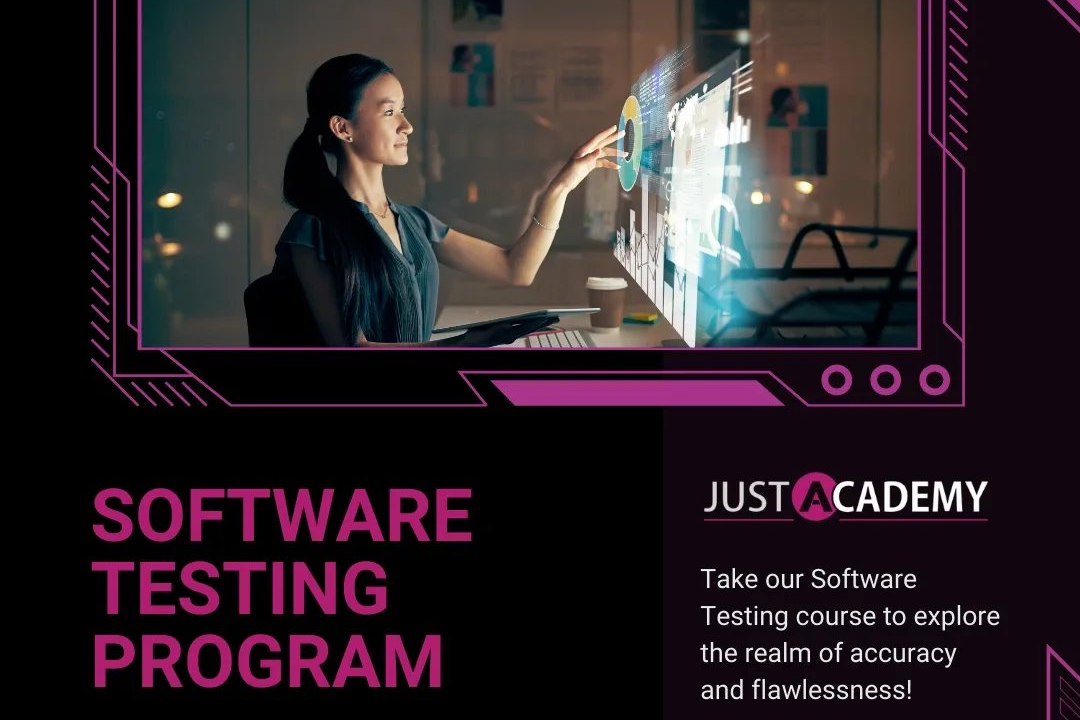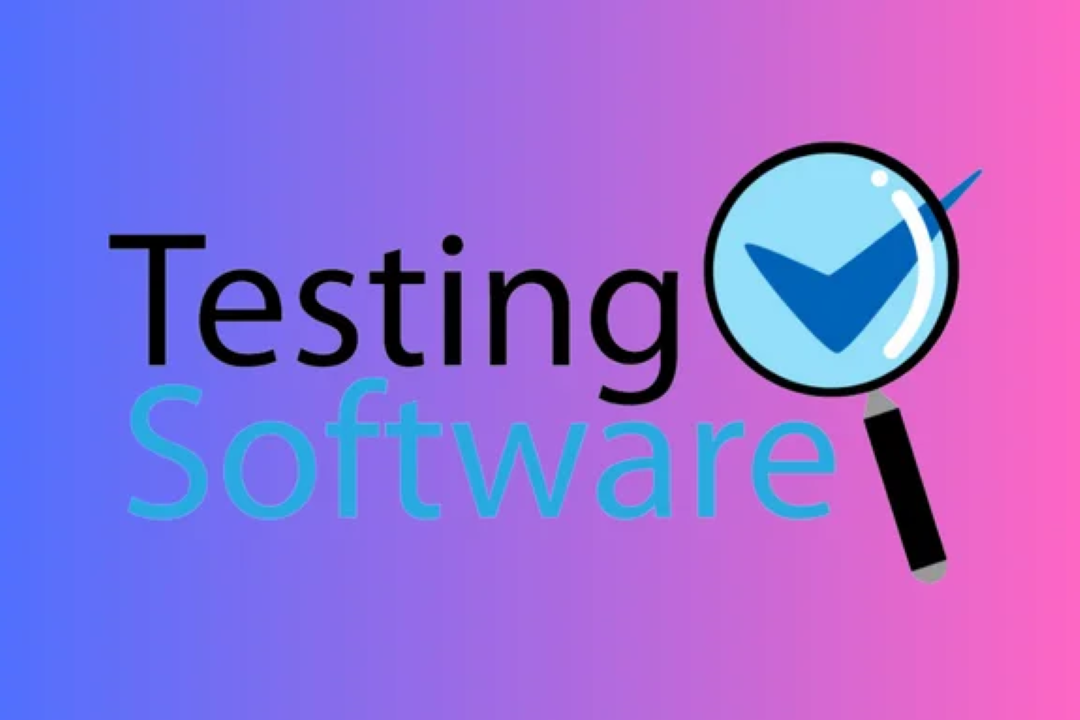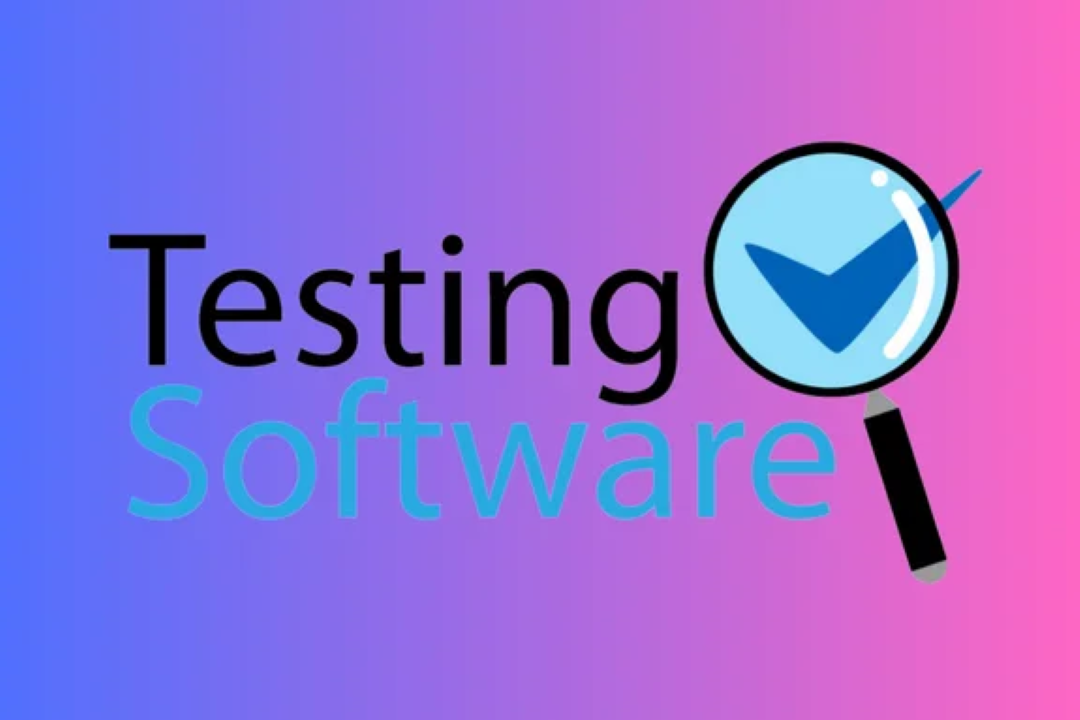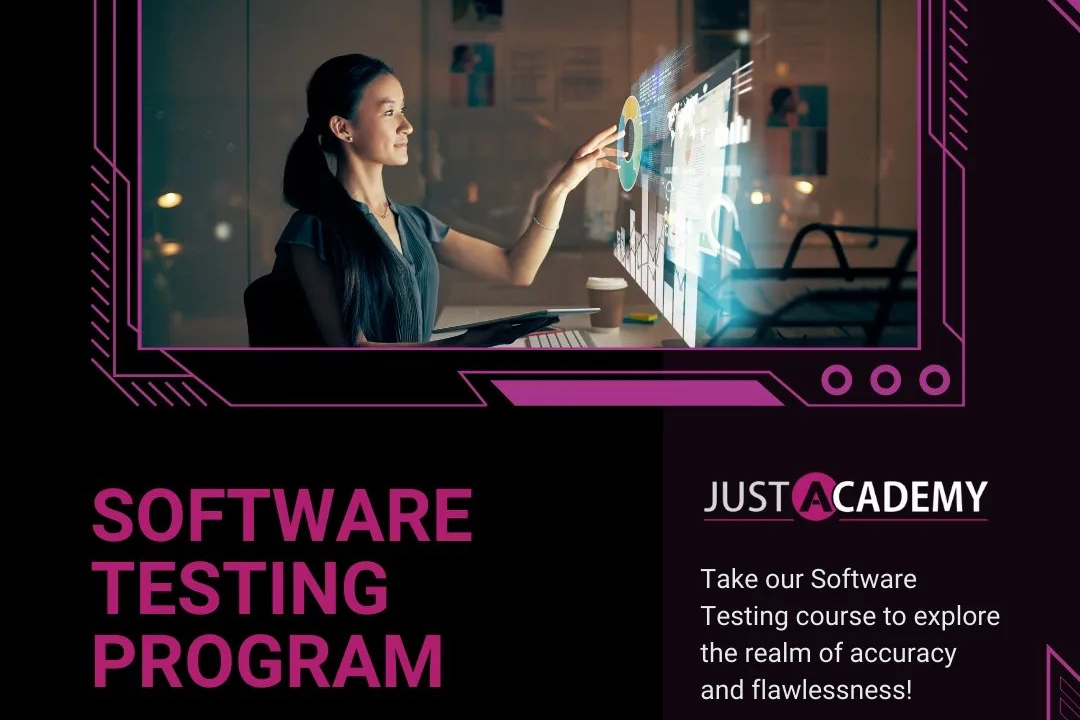Best Flutter UI Templates
The best Flutter UI templates serve as pre-built design frameworks that streamline the mobile app de
Best Flutter UI Templates
The best Flutter UI templates are invaluable tools for developers, as they significantly expedite the app development process by providing ready-to-use, customizable design components. These templates are built with Material Design principles, ensuring a sleek and modern aesthetic that enhances user experience. By utilizing these pre-designed elements, developers can focus more on functionality and less on design, enabling quicker production of high-quality mobile applications. Additionally, leveraging UI templates fosters consistency across the app's user interface, ultimately leading to a more cohesive and engaging product for end-users.
To Download Our Brochure: https://www.justacademy.co/download-brochure-for-free
Message us for more information: +91 9987184296
The best Flutter UI templates are invaluable tools for developers, as they significantly expedite the app development process by providing ready to use, customizable design components. These templates are built with Material Design principles, ensuring a sleek and modern aesthetic that enhances user experience. By utilizing these pre designed elements, developers can focus more on functionality and less on design, enabling quicker production of high quality mobile applications. Additionally, leveraging UI templates fosters consistency across the app's user interface, ultimately leading to a more cohesive and engaging product for end users.
Course Overview
The ‘Best Flutter UI Templates’ course offered by JustAcademy provides an in-depth exploration of top Flutter UI templates, emphasizing their practical application in mobile app development. Participants will learn how to effectively utilize these templates to accelerate the design process, ensuring modern, user-friendly interfaces for their applications. Through hands-on projects, the course covers customization techniques and best practices for integrating templates into real-time applications. By the end of the course, students will possess the skills to enhance their development workflow, create visually appealing apps, and improve overall user experience.
Course Description
The “Best Flutter UI Templates” course at JustAcademy offers a comprehensive guide to leveraging top-notch Flutter UI templates for efficient mobile app development. Participants will explore a curated selection of high-quality templates, learning how to customize and integrate them into their projects seamlessly. With a focus on best practices and real-time project applications, the course equips students with the skills to enhance their design workflow, create stunning user interfaces, and deliver engaging mobile experiences. By the end, learners will be well-prepared to implement these templates effectively, boosting both their design capabilities and development speed.
Key Features
1 - Comprehensive Tool Coverage: Provides hands-on training with a range of industry-standard testing tools, including Selenium, JIRA, LoadRunner, and TestRail.
2) Practical Exercises: Features real-world exercises and case studies to apply tools in various testing scenarios.
3) Interactive Learning: Includes interactive sessions with industry experts for personalized feedback and guidance.
4) Detailed Tutorials: Offers extensive tutorials and documentation on tool functionalities and best practices.
5) Advanced Techniques: Covers both fundamental and advanced techniques for using testing tools effectively.
6) Data Visualization: Integrates tools for visualizing test metrics and results, enhancing data interpretation and decision-making.
7) Tool Integration: Teaches how to integrate testing tools into the software development lifecycle for streamlined workflows.
8) Project-Based Learning: Focuses on project-based learning to build practical skills and create a portfolio of completed tasks.
9) Career Support: Provides resources and support for applying learned skills to real-world job scenarios, including resume building and interview preparation.
10) Up-to-Date Content: Ensures that course materials reflect the latest industry standards and tool updates.
Benefits of taking our course
Functional Tools
1 - Flutter SDK: The core of Flutter development, the Flutter Software Development Kit (SDK) provides everything needed to build applications. It includes essential libraries, tools, and widgets that facilitate UI design and functionality. Students will learn how to set up the SDK on their machines, enabling them to create, run, and debug their projects seamlessly.
2) Dart Programming Language: Dart is the programming language used with Flutter. It allows developers to write expressive and efficient code. In the training program, students will be introduced to Dart's syntax, features such as asynchronous programming, and how to create reusable widgets, enhancing their understanding of building complex UIs.
3) Visual Studio Code (VS Code): As a popular code editor among Flutter developers, VS Code offers several extensions that improve productivity. Students will learn how to install Flutter and Dart extensions, set up code snippets, and utilize integrated terminal features, making coding more straightforward and efficient.
4) Flutter DevTools: This suite of performance and debugging tools helps developers understand their app's performance and behavior. The training includes hands on experience with DevTools, helping students learn how to analyze and optimize their applications for better responsiveness and user experience.
5) Firebase: Firebase is a vital tool for integrating backend services with Flutter applications, offering features such as real time databases, authentication, and cloud storage. Participants will gain insights into how to implement Firebase within their apps, facilitating the development of full stack applications that are scalable and secure.
6) Figma: A leading design tool, Figma is used to create and collaborate on UI designs in real time. Students will learn how to convert designs created in Figma into Flutter widgets and how to maintain design consistency throughout the development process, bridging the gap between design and implementation.
7) Git: Version control is crucial in the software development process, and Git allows students to track their code changes efficiently. In the training, learners will be taught best practices for using Git to manage their projects, fostering collaborative workflows and enabling seamless code management among teams.
8) Pub.dev: An essential package repository for Flutter, Pub.dev allows developers to find and integrate third party libraries and packages easily. Students will explore how to locate useful packages that enhance their applications’ functionality, as well as best practices for package management and integration.
9) Postman: For testing APIs and understanding how to connect their applications to external services, Postman serves as a powerful tool. The program will guide students on how to use Postman to send requests and analyze responses, equipping them with the skills necessary to build well connected applications.
10) Adobe XD: Similar to Figma, Adobe XD is another UI/UX design tool that plays a significant role in the development process. The training will help students learn how to create prototypes and wireframes in Adobe XD, which can then be translated into Flutter UI components, enhancing their ability to prototype and design user friendly applications effectively.
11 - State Management Solutions: Effective state management is crucial in Flutter applications. Students will learn various state management approaches such as Provider, Riverpod, and Bloc. Understanding these patterns will help them manage application state more efficiently, leading to cleaner and more maintainable code.
12) Responsive Design Principles: Creating applications that work well on various screen sizes and orientations is essential in today's mobile landscape. The training will cover responsive design principles, including how to use media queries and layout widgets in Flutter to build adaptive layouts that ensure a consistent user experience across devices.
13) Flutter Animations: Animations can significantly enhance user experience by providing visual feedback and interactivity. Participants will explore Flutter's animation framework, learning how to create expressive animations, transitions, and effects that can make their applications feel more dynamic and engaging.
14) Network Requests with HTTP: Interacting with remote APIs is a common requirement in app development. The course will teach students how to perform network requests using packages like `http`, handling asynchronous data, and parsing JSON responses to integrate dynamic content into their applications.
15) Testing and Debugging: Quality assurance is vital in software development. Students will be trained on writing unit tests, widget tests, and integration tests in Flutter. They will also learn debugging techniques to identify and fix issues efficiently, ensuring their applications are reliable and robust.
16) Publishing Apps: Understanding the app distribution process is crucial for launching successful applications. The training will guide students through the steps of preparing their Flutter apps for deployment on platforms like the Apple App Store and Google Play Store, including how to manage app versions, handling app permissions, and creating release builds.
17) Working with Local Databases: Many applications require local data storage for offline access. The course will delve into using SQLite and shared preferences within Flutter, teaching participants how to store, retrieve, and manage data locally to enhance user experience.
18) Third Party API Integration: Many apps rely on third party services for additional functionality such as payment processing, social media sharing, or location services. Students will learn how to integrate various APIs and services into their applications, expanding their understanding of how to build feature rich applications.
19) Custom Widgets Creation: As Flutter uses a widget based architecture, creating custom widgets is a powerful way to ensure code reusability and modular design. The training program will guide students on how to build and utilize custom widgets to create unique user interfaces tailored to their application's needs.
20) Microservices Architecture: Understanding microservices can be beneficial for students working on larger applications. The course will touch upon integrating Flutter apps with microservices, exploring how to create scalable applications that can leverage backend services effectively while ensuring maintainability.
21 - Deployment and Continuous Integration (CI): Implementing CI/CD practices can streamline the development process. Students will learn about CI/CD pipelines and tools like GitHub Actions or Travis CI, allowing them to automate testing and deployment processes, ensuring their applications are consistently updated and released.
22) Community and Resources: Finally, students will be introduced to the vast Flutter community and various online resources available for continued learning. This includes forums, documentation, blogs, and conferences where they can seek help, share knowledge, and stay updated on the latest best practices and advancements in Flutter development.
23) Security Best Practices: With increasing concerns around data security, this segment will focus on implementing security best practices in Flutter applications, such as secure API handling, user authentication, and data encryption, ensuring that applications are built with user safety in mind.
24) Performance Optimization Techniques: To ensure a smooth user experience, performance optimization is key in mobile app development. The course will cover techniques for reducing app load times, improving frame rates, and optimizing asset management, equipping students to create high performance Flutter applications.
25) Design Patterns in Flutter: Understanding design patterns can significantly impact the quality of the codebase. The training will introduce common design patterns such as MVC, MVVM, and Singleton within Flutter, helping students write cleaner, more scalable code and understand best practices for software architecture.
Browse our course links : https://www.justacademy.co/all-courses
To Join our FREE DEMO Session:
This information is sourced from JustAcademy
Contact Info:
Roshan Chaturvedi
Message us on Whatsapp: +91 9987184296
Email id: info@justacademy.co
Medico Flutter App UI Kit Free Download

